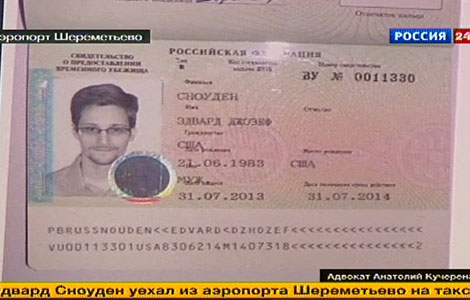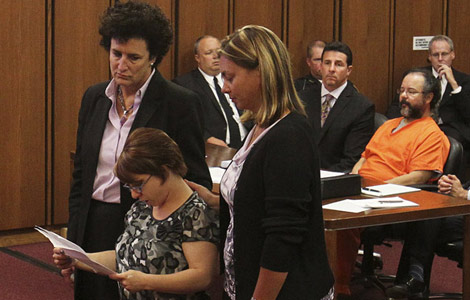Number of leaked documents was 'overwhelming'
Updated: 2013-08-02 10:10
(Agencies/China Daily)
|
||||||||
The US Army was overwhelmed when WikiLeaks published more than 700,000 secret diplomatic and war documents handed over by soldier Bradley Manning, a retired officer testified in the sentencing phase of the convicted private's court-martial.

"The ones that hit us in the face were the Iraq logs," retired Brigadier General Robert Carr said in a Fort Meade, Maryland, court on Wednesday, a day after a military judge found Manning guilty of 19 charges over the leaks in 2010, the biggest breach of classified data in US history.
"No one had ever had to deal with this number of documents," Carr said.
A prosecutor told the sentencing hearing that the leaks caused military intelligence officials to rethink how much access to allow low level intelligence analysts like Manning.
Judge Colonel Denise Lind began hearing arguments on Wednesday on how long a sentence Manning should face, with the soldier's lawyers expected to argue for leniency.
While Manning, 25, was acquitted on the most serious charge of aiding the enemy, sparing him life without parole, he could still face decades in a military prison.
Taliban tie
The slightly built Army private first class was in Baghdad in 2010 when he was arrested and charged with leaking files, including videos of a 2007 attack by an US Apache helicopter gunship in Baghdad that killed a dozen people, including two Reuters news staff, as well as diplomatic cables and secret details on prisoners held at Guantanamo Bay.
Carr testified that Taliban militants in Afghanistan had claimed that the leaks allowed them to track down an Afghan citizen who had worked with US intelligence. "The Taliban killed him and tied him to the disclosures," Carr said.
Manning's lawyers were expected to argue that the Army private was not trying to jeopardize US national security. He did not testify during his trial or during the first day of his sentencing hearing.
Some observers pointed out that the case of Manning, as well as that of former CIA security contractor Edward Snowden, illustrated the risk inherent in granting security clearance so broadly. Snowden last month released documents to the media detailing US programs to monitor phone and internet usage.
US intelligence agencies grant analysts broad access to classified files in hopes they will connect disparate pieces of evidence to interpret events and avoid the sort of lapses that led to clues being overlooked before the Sept 11, 2001, hijacked plane attacks and the bombing of the Boston Marathon in April.
"As with any type of computer database and security, the weakest link is the person who's operating it," said Scott White, a professor of homeland security management at Drexel University in Philadelphia.
Reuters

 Snowden granted 1 year's temporary asylum in Russia
Snowden granted 1 year's temporary asylum in Russia
 US kidnapper of 3 girls gets life in prison
US kidnapper of 3 girls gets life in prison
 China sails through 'first island chain'
China sails through 'first island chain'
 City's visa-free offer gets first takers
City's visa-free offer gets first takers
 Property prices rise again
Property prices rise again
 One-stop service offers new hope
One-stop service offers new hope
 Private museums increasingly under spotlight
Private museums increasingly under spotlight
 Apple CEO met China Mobile head, talked co-op
Apple CEO met China Mobile head, talked co-op
Most Viewed
Editor's Picks

|

|

|

|

|

|
Today's Top News
Imbalance seen in Sino-US talent exchanges
Berlusconi conviction upheld; prison term sticks
China launches platform against web rumors
China sails through 'first island chain'
US rethinking Putin summit
Property prices rise again
China 'to add more to global growth'
Nation 'confident' on trade
US Weekly

|

|







